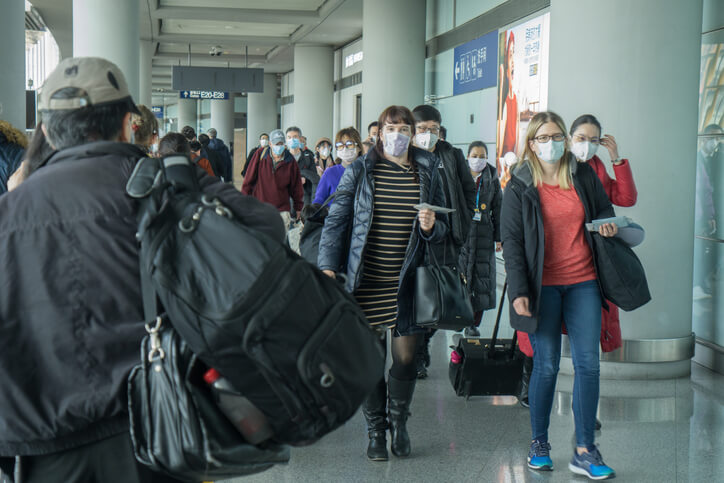After a year under the cloud of quarantine from COVID-19, it might seem like a good idea to start planning the next vacation. With COVID-19 vaccination rates on the rise in the U.S, it may even seem like a great idea.
Perhaps. But perhaps not.
International and domestic travel for university business purposes remains restricted. Personal international travel is discouraged, and several factors should be considered prior to traveling, said Julie Wilbers, director of the Office of International Services.
“It remains that things with COVID-19 — restrictions and mandates — are fluid around the world,” she said. “While many Americans have received the vaccine, vaccination rates around the world are far lower. Additionally, COVID-19 continues to ravage parts of the world, with India currently acting as the epicenter.”
The Department of State recently updated its travel advisories to better reflect guidance set forth by the Center for Disease Control and Prevention. Now nearly all worldwide travel advisories, 80%, are designed as Level 4: Do not travel.
This designation means there are several obstacles to safe travel, Wilbers said.
“Examples include required quarantine upon arrival at your destination if traveling from and/or through specific countries. You may also be required to present a negative COVID-19 test prior to entry into that country, and this remains a requirement for re-entry to the U.S. In some countries, these tests can be very difficult to secure,” she said.
Other obstacles include high COVID-19 rates, low vaccination rates, limited airline availability or cancellations, limited or suspended U.S. consular services and decreased hospital capacity if travelers face a medical emergency in the host country.
And, she warns: “Although still highly recommended, the travel insurance you should purchase will potentially exclude claims related to a pandemic,” she said.
Potential travelers should consider international trips carefully, said Chris Fuglestad, education abroad coordinator.
“Safe travel considerations are ever-changing, but there are resources available to help you make decisions,” he said. “Consult the Department of State website, the CDC website and ensure you are registered with the Department of State’s Smart Travel Program.”
For personal travel, members of the UT System are eligible to purchase coverage from International SOS at a discounted rate by utilizing the UT System’s member number: 11BSGC000037.
Additionally, non-U.S. citizens should pay careful attention to visa appointment availability, along with any pandemic-related travel bans, Wilbers said.
“It will take time to develop a new ‘normal’ for international travel. In the meantime, the Office of International Services is happy to provide information and updates as needed,” she said.
For more information, email abroad@uthscsa.edu or call the Office for International Services at 210-567-6241. International students or scholars who have an urgent need to travel should contact international@uthscsa.edu.


